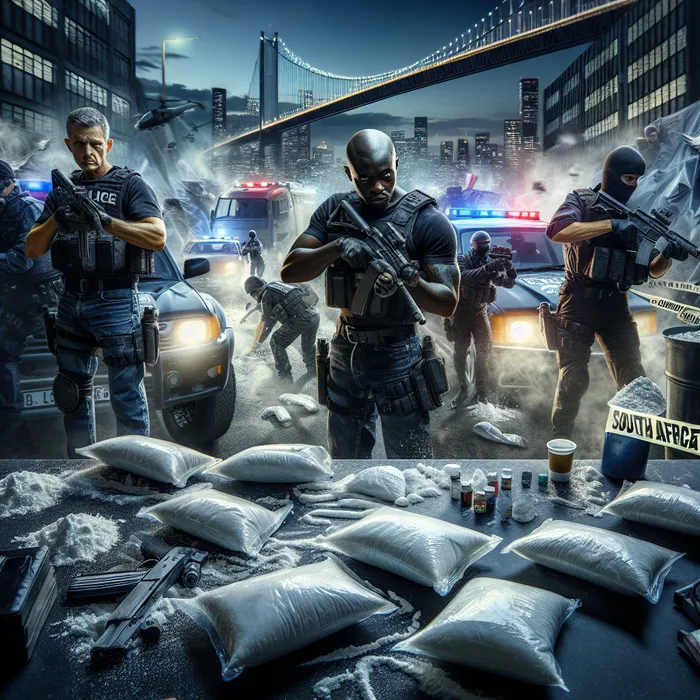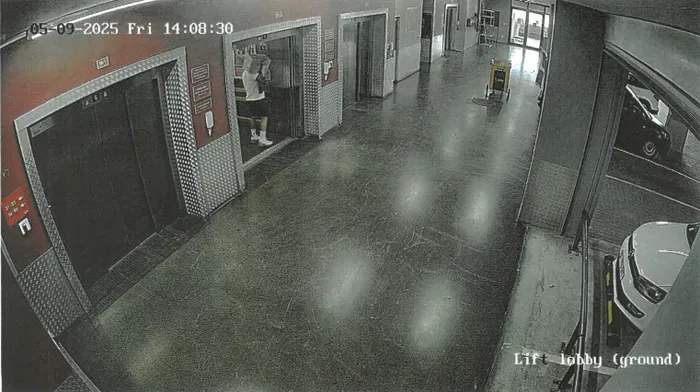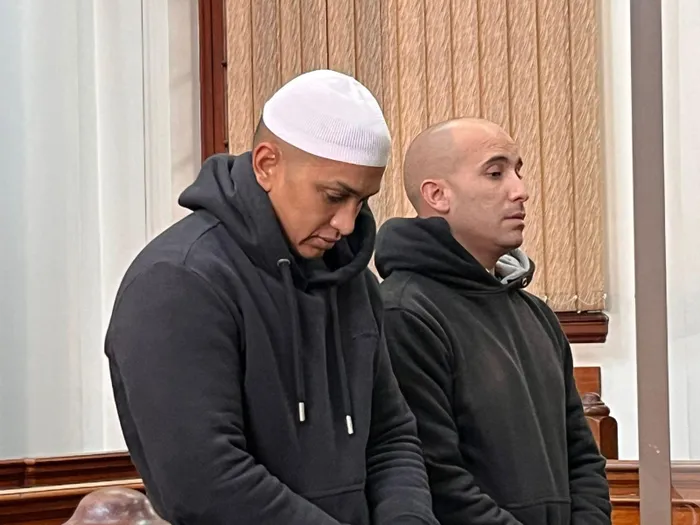
Police officers in action during a significant drug bust in South Africa, showcasing the ongoing battle against international drug trafficking.
Image: AI RON
Experts have applauded the police and Hawks, who they say are slowly crippling the international drug cartel network.
Large busts have taken place in Cape Town and around the country in recent weeks, totalling more than R70 million at various locations and warehouses.
The latest Cape Town case is that of R18 million worth of cocaine, which was allegedly found with a suspended Standard Bank manager, Raed Cupido, 40, apparently linked to international cartels.

A suspended senior banker is alleged to be a first receiver of the drugs from international drug cartels.
Image: Supplied
Cupido’s alleged accomplice, Christopher Carlese, has also been charged.
Another bust was made after a 25-year-old alleged drug trafficker was arrested on arrival from São Paulo (Brazil) via Doha (Qatar) on July 29.
According to police spokesperson, Amanda van Wyk, Crime Intelligence Counter Narcotics in Gauteng, OR Tambo International Airport's SAPS team, Border Management Authority and private security intercepted the Brazilian national.
“About 10kg of cocaine worth R4.2 million was found in the luggage. The suspect was taken for a medical exam to check for swallowed cocaine bullets. SAPS continues to dismantle transnational drug syndicates, over 25 traffickers arrested at this port of entry since the start of the year,” Van Wyk said.

Suspended Standard Bank manager Raed Cupido and co-accused Christopher Brice Carelse appeared in the Cape Town Magistrates Court on Friday.
Image: Mandilakhe Tshwete
On July 13, during a search of a premises in Goodwood in Cape Town, a 32-year-old man from Tanzania and a 28-year-old from Burundi were found with 145kg of tik and 16kg of heroin, totalling R54.3million.
Willem Els, senior training coordinator on terrorism and explosives related incidents at the Transnational Threats and International Crimes Programme and of the Institute for Security Studies said cartels needed protection, and in some cases, politics were also at hand.
“South Africa is known as the 'Southern Route' for both heroin and synthetic drugs smuggled along the east coast of Africa, along the so-called Swahili coast, or also branded in an ISS Research paper, the 'Heroin Coast'. They make use of the existing trade route that has been in existence for around 1000 years,” he said.
“These drugs are smuggled on traditional boats or Dhows, entering the continent through southern Tanzania and Northern Mozambique. From there, they are smuggled over land to South Africa.
"Of late, several major clandestine drug labs have been discovered, with many arrests, and amongst them, Mexican citizens. The busts in the Durban harbour, with the recent revelations of Lieutenant General Mkhwanazi, shed some light on why we do not see many arrests of kingpins.
“South Africa, with its porous borders, became a haven for these cartels to operate, and porous borders do not only refer to understaffed and ill-equipped ports of entry, but also to compromised state-embedded actors.”
Els agreed, inroads and a dent was being made.
“We believe that the current shake-up within the law-and-order environment may lead to many more arrests and also the exposure of the state-embedded actors that facilitated and gained from this illicit trade,” he added.
Cape Argus